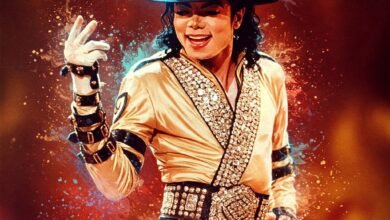
Introduction to Real Madrid
Real Madrid Club de Fútbol, commonly known as Real Madrid, is a prestigious professional football club based in Madrid, Spain. Founded on March 6, 1902, the club has evolved into one of the most iconic football institutions globally, enjoying remarkable success both on and off the pitch. Real Madrid is not merely a sports club; it embodies a sense of collective identity and pride among its fans, known as “madridistas”. This cultural significance extends beyond sport, representing commitment, perseverance, and excellence.
The club’s home ground is the Santiago Bernabéu Stadium, renowned for its impressive architecture and seating capacity of over 80,000, making it a prominent venue for international matches and major tournaments. Throughout its history, Real Madrid has become synonymous with success, boasting an extensive collection of trophies, including numerous La Liga titles and UEFA Champions League victories. This unparalleled accomplishment has earned the club a prominent place in the annals of football history, as it continually strives to uphold its invincible spirit.
The values of Real Madrid encapsulate a commitment to sportsmanship, teamwork, and ambition, underpinned by a robust institutional framework that fosters both athletic and social development. This commitment extends to its youth academy, which has produced some of the most talented footballers in the world. Furthermore, Real Madrid’s dedication to charitable causes enhances its appeal, making it a beloved institution not only among fans but also within communities.
As we delve deeper into the legacy and achievements of Real Madrid, we will uncover the myriad elements that have contributed to its status as a global football giant. Highlights of its illustrious past and significant milestones will demonstrate the profound impact this club has had on the sport, solidifying its importance in the global football narrative.
Historical Background of Real Madrid
Real Madrid Club de Fútbol, one of the most renowned football clubs in the world, was founded on March 6, 1902. The club emerged during a period characterized by significant social and political change in Spain, notably the rise of urbanization and a growing passion for sports, particularly football. Initially operated as a football club with the name Madrid Foot Ball Club, it garnered attention quickly and secured its first significant victory, winning the Copa del Rey in 1905. This early success laid the groundwork for what would become a storied history.
Throughout the early decades of the 20th century, Real Madrid grew in popularity and prestige. The club played a pivotal role in the establishment of La Liga in 1929, consolidating its status within Spanish football. The 1930s marked a turbulent period for Spain overall, as the Spanish Civil War had direct repercussions on the club. However, post-civil unrest, Real Madrid emerged triumphant, winning numerous championships, including an impressive five consecutive La Liga titles from 1960 to 1965, which reinforced its dominance in Spanish football.
The 1950s was a transformative decade for Real Madrid, as the club attained international acclaim by winning the inaugural European Cup in 1956. This success not only brought glory to the club but also introduced Spanish football to a broader audience, establishing a philosophical and tactical framework that would influence football worldwide. Under the management of legendary figures such as Alfredo Di Stéfano, the club became synonymous with excellence and ambition, heralding a new era in both Spanish and European football.
By the turn of the 21st century, Real Madrid had cemented its legacy, becoming the first club to win the UEFA Champions League multiple times. Through its rich history, the club has navigated through challenges while consistently evolving, thereby ensuring its position as a formidable force in the world of football.
Achievements and Trophies
Real Madrid Club de Fútbol, often simply referred to as Real Madrid, stands as one of the most successful football clubs in the history of the sport. The establishment of the club in 1902 marked the beginning of a journey characterized by numerous achievements and trophies that have cemented its legacy in both domestic and international football.
In the realm of domestic competitions, Real Madrid has secured a remarkable number of La Liga titles, with over 30 championships to their name. This achievement highlights their consistent dominance in Spanish football, showcasing a blend of tactical proficiency and individual talent. Additionally, the club has won the Copa del Rey on multiple occasions, further proving their capability to excel in knockout competitions.
On the international stage, Real Madrid’s prowess is perhaps most vividly illustrated by its unparalleled success in the UEFA Champions League. The club has lifted the prestigious trophy more than 14 times, a record that underscores their supremacy in Europe. This iconic competition has seen legendary matches and memorable performances from players who have donned the famous white jersey, etching their names in football history.
Real Madrid’s international accolades extend beyond the UEFA Champions League. The club has also triumphed in the FIFA Club World Cup, solidifying their status as a global powerhouse. Furthermore, in terms of European Super Cups, the team has repeatedly showcased its ability to compete at the highest levels, underlining their rich tradition and relentless pursuit of excellence.
Statistics and records hold significant weight in the narrative of Real Madrid’s achievements. The club excels not only in the quantity of trophies but also in their contributions to the sport, including producing countless world-class players who have transformed the game. With a legacy defined by dominance, resilience, and an unwavering pursuit of glory, Real Madrid continues to shine brightly as a beacon of success in the world of football.
Iconic Players and Legends
Real Madrid Club de Fútbol, one of the most storied football clubs in history, has been graced by numerous iconic players whose talents and achievements have contributed significantly to its legacy. Among these football legends, Alfredo Di Stéfano stands out as a pioneering figure. His versatility on the field, being able to play various positions, revolutionized the role of a forward. Di Stéfano was instrumental in securing five consecutive European Cups for Real Madrid during the 1950s, establishing the club’s dominance and setting a precedent for future success.
Another towering figure in the club’s history is Raúl González Blanco, commonly known simply as Raúl. As a homegrown talent, Raúl’s commitment and loyalty to Real Madrid made him a beloved figure among fans. His impressive goal-scoring record, along with his leadership on and off the field, solidified his status as a true icon. He was an essential part of the team during the late 1990s and early 2000s, leading the club to three Champions League titles and many domestic victories.
More recently, Cristiano Ronaldo has redefined what it means to be a forward at Real Madrid. His arrival in 2009 marked the start of an era characterized by personal and collective achievements. Over nine seasons, Ronaldo shattered numerous records, becoming the club’s all-time leading scorer. His remarkable ability to perform in crucial moments helped Real Madrid secure four Champions League trophies during his tenure, further cementing the club’s prestigious identity in the football world.
Together, these players represent the essence of what Real Madrid stands for: excellence, determination, and an unwavering commitment to success. Their contributions and unforgettable moments on the pitch inspire future generations of footballers and fans alike, ensuring that their legacies persist within the club’s rich history.
The Santiago Bernabéu Stadium
The Santiago Bernabéu Stadium, inaugurated in 1947, serves as the legendary home ground of Real Madrid Club de Fútbol. Located in the heart of Madrid, this iconic structure has become a symbol of both the club’s rich history and the city itself. With a seating capacity of approximately 81,044, it stands as one of the largest stadiums in Europe, allowing countless fans to gather in support of their beloved team. Over the decades, the stadium has undergone numerous renovations, enhancing its architectural relevance and modern amenities.
Architecturally, the Santiago Bernabéu is a prime example of the evolution in stadium design, featuring a blend of neoclassical elements and contemporary touches. The stadium’s distinctive façade is characterized by its sleek lines and impressive tiered seating, capturing the spirit of modernity while paying homage to its storied past. The continuous improvements made to the stadium, particularly the addition of a retractable roof and updated seating areas, underscore its commitment to excellence and innovation, making it a state-of-the-art venue.
Many memorable matches have taken place at the Santiago Bernabéu Stadium, solidifying its status as a cathedral of football. Noteworthy encounters include high-stakes clashes in both domestic league play and European competitions, culminating in several UEFA Champions League finals. The stadium has also hosted historical moments, such as Alfredo Di Stéfano’s debut and Zinedine Zidane’s iconic volley against Bayer Leverkusen, events that are etched in the annals of football history. As an essential part of Real Madrid’s identity, the stadium not only embodies the club’s successes but also serves as a gathering place for passionate fans, echoing the pride and spirit of Los Blancos.
Rivalries and El Clásico
Real Madrid Club de Fútbol’s storied history is marked by intense rivalries, with its most prominent clash occurring against FC Barcelona, known as El Clásico. This fixture is more than just a football match; it embodies decades of cultural, political, and social dynamics that resonate deeply within Spanish society. The rivalry positions itself as one of the fiercest in global football, characterized by passionate fans and remarkable performances from both teams on the pitch.
The inception of this historic rivalry can be traced back to the early 20th century, rooted in regional pride and competition. Over the years, El Clásico has evolved into a symbol of the broader sociopolitical divide in Spain, with Real Madrid often associated with Spanish nationalism, while FC Barcelona embodies Catalan identity and pride. This inherent tension adds layers of meaning to each encounter, making the stakes immensely higher whenever these two giants face off.
The significance of El Clásico extends beyond the matchday results; it influences the landscape of Spanish football. Each clash garners attention from around the world, often determining league titles and shaping narratives around club dominance. Furthermore, the performance of star players during these matches can redefine their careers and elevation in football history. The rivalry has seen legendary figures, including Alfredo Di Stéfano, Ferenc Puskás, Lionel Messi, and Cristiano Ronaldo, deliver unforgettable moments that echo through generations.
Each El Clásico not only captivates millions of viewers but also enriches the cultural tapestry of Spain, uniting fans and provoking spirited debates. As the world watches, this timeless rivalry continues, with each confrontation reinforcing its revered status as the pinnacle of football rivalries. The legacy of Real Madrid and its passion for the sport remains firmly intertwined with the fierce tradition of El Clásico, ensuring that it remains a pivotal aspect of the club’s identity and Spanish football culture.
The Club’s Global Impact
Real Madrid Club de Fútbol stands as one of the most renowned football institutions globally, with an extensive and passionate fan base that spans across continents. The club’s reach is not confined to its historic roots in Spain; instead, it has transcended geographic boundaries, establishing itself as a cultural phenomenon. Real Madrid’s success on the pitch has been complemented by robust marketing strategies aimed at engaging fans and expanding its influence worldwide.
The club boasts millions of followers on various social media platforms, showcasing its dedication to connecting with supporters regardless of their location. Through these digital channels, Real Madrid shares updates, insights, and behind-the-scenes content, fostering a sense of community among its fans. This engagement is pivotal, as it not only increases brand visibility but also cultivates loyalty among existing supporters while attracting new ones. Furthermore, Real Madrid has made significant investments in promotional efforts, including international tours and friendly matches, which contribute to a stronger global presence.
The impact of Real Madrid extends beyond mere popularity; the club plays a vital role in promoting football as a universal sport. By fostering international collaborations and participating in global initiatives, Real Madrid has become synonymous with excellence in football. Its success has inspired countless aspiring athletes, encouraging the growth of the sport at grassroots levels across diverse regions. Additionally, the club’s emphasis on promoting core values such as teamwork, discipline, and perseverance resonates with fans and players alike, effectively positioning Real Madrid as a beacon of inspiration in the world of sports.
In essence, Real Madrid Club de Fútbol is not just a football club but a significant player in the promotion and appreciation of the sport worldwide. The club epitomizes the essence of football, acting as a unifying force for diverse fan bases, while its marketing strategies have reinforced its status as a leading entity in international football.
Management and Coaching Philosophy
Real Madrid Club de Fútbol, one of the most decorated football clubs in the world, boasts a robust management structure that has consistently influenced its coaching philosophy. The club’s administration has been pivotal in shaping its strategic direction, focusing on player development and competitive success. At the helm of the management structure is the president, a position currently held by Florentino Pérez, known for his ambitious vision and commitment to excellence. Pérez’s tenure has seen the club achieve both financial stability and sporting success, underlining the importance of strong leadership in managing a world-class football institution.
The management hierarchy of Real Madrid encompasses various departments, including athletic direction, scouting, and player recruitment. Each segment works cohesively to ensure that the coaching staff is equipped with the best talent available, fostering an environment conducive to success on the pitch. The emphasis on identifying young talent has been essential for the club’s long-term strategy, promoting a blend of seasoned players and emerging stars. This approach has not only bolstered the team’s competitiveness but has also contributed significantly to Real Madrid’s rich history.
Coaching philosophy at Real Madrid has evolved over the years, with a recurring focus on offensive play and attacking football, a hallmark of the club’s identity. Legendary coaches such as Vicente del Bosque and Zinedine Zidane have left indelible marks on the team’s gameplay, emphasizing tactical flexibility and player creativity. With each coaching regime, the integration of new methods has facilitated a culture of continuous improvement, reflecting the dynamic nature of the sport. This adaptability has been crucial in maintaining dominance in both domestic and international competitions, enabling Real Madrid to remain a formidable force in the football world.
Future Prospects and Challenges
As Real Madrid Club de Fútbol continues to evolve in the dynamic landscape of professional football, the club faces a myriad of challenges and opportunities that will shape its future prospects. Maintaining the esteemed status of one of the world’s top football clubs involves not only rigorous management and tactical prowess but also a forward-thinking approach to player recruitment and development.
One of the primary challenges confronting Real Madrid is the intensifying competition from other elite clubs, particularly within La Liga and across Europe. Teams like FC Barcelona, Atlético Madrid, and emerging powerhouses from the English Premier League and Serie A are not only quickening the pace of competition but are also actively enhancing their squads with strategic acquisitions. To uphold its legacy, Real Madrid must adopt astute scouting practices and effectively forge partnerships with promising talents worldwide. This might involve investing in youth academies, such as La Fábrica, and fostering relationships with lower-league clubs around the globe.
Furthermore, Real Madrid’s financial strategy plays an integral role in its long-term planning. While the club enjoys significant revenue streams from merchandising, sponsorships, and broadcasting rights, prudent fiscal management is essential to safeguard its financial health amid fluctuating market conditions. The management’s ability to strike a balance between investing in high-profile players and the long-term development of talents is vital for sustaining competitive performance without risking financial stability.
Technology and analytics are becoming increasingly influential in football, and Real Madrid’s future prospects will inevitably be tied to how effectively the club integrates data-driven insights into its training and match strategies. Embracing modern football analytics can be pivotal in enhancing player performance and injury prevention while optimizing game strategies to outmaneuver formidable rivals.
In conclusion, the journey ahead for Real Madrid Club de Fútbol is filled with both challenges and opportunities. By focusing on intelligent recruitment, sound financial management, and embracing innovation, the club can continue to build upon its rich legacy and uphold its prestigious status in the global football arena.




















